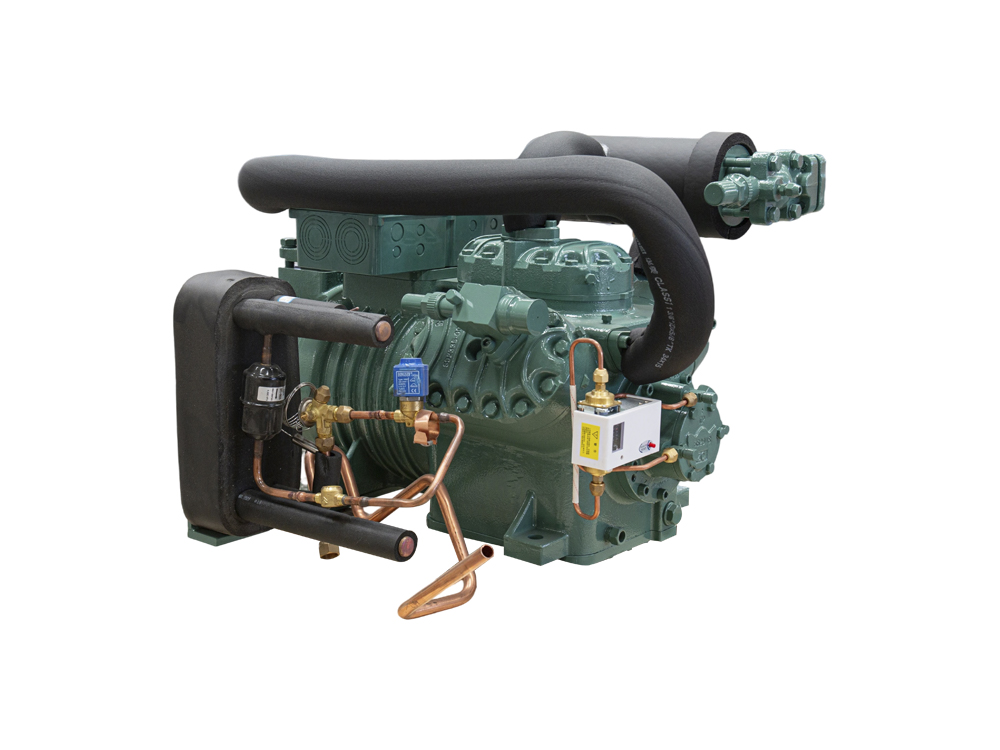How Does the Bipolar Compressor Revolutionize Modern Refrigeration and Industrial Cooling Applications?
In the evolving landscape of refrigeration and industrial cooling, efficiency, reliability, and adaptability are paramount. The bipolar compressor has emerged as a key innovation, offering unique advantages in energy consumption, operational stability, and application versatility. Understanding its working principles, performance characteristics, and integration into various systems is essential for professionals seeking optimized solutions for industrial, commercial, and specialized refrigeration needs.
Overview of Bipolar Compressors
A bipolar compressor is a type of refrigeration compressor that incorporates dual-polar operation mechanisms to achieve precise control over refrigerant compression and flow. Unlike conventional single-polar compressors, bipolar compressors are designed to reduce energy losses during operation and improve overall system efficiency. The bipolar configuration allows for dynamic adjustment of operational cycles, catering to varying load demands without sacrificing performance.
These compressors are widely applied across industries requiring precise temperature control, including food cold chain logistics, pharmaceutical storage, industrial process cooling, and marine refrigeration. Their ability to maintain consistent performance under fluctuating loads makes them ideal for critical applications where temperature deviations could result in product loss or safety risks.
Core Principles and Working Mechanism
The bipolar compressor operates on a dual-polar electromotive principle. Each "pole" corresponds to a discrete operational mode, enabling the compressor to switch between varying compression ratios as required. This mechanism provides several advantages:
- Energy efficiency: By modulating the compression stages, energy wastage during low-load conditions is minimized.
- Reduced mechanical stress: The dual-pole design distributes operational forces evenly, reducing wear and extending service life.
- Enhanced control: The compressor can respond quickly to changes in system pressure or temperature, maintaining precise refrigeration levels.
In practical terms, the bipolar compressor integrates advanced components such as hermetically sealed motors, variable-speed drives, and adaptive valve systems. These features collectively optimize refrigerant flow and system responsiveness.
Advantages Over Conventional Compressors
Compared to traditional reciprocating or scroll compressors, the bipolar compressor provides several distinct benefits:
- Improved Energy Efficiency: Bipolar compressors adjust power consumption dynamically according to load demand, offering energy savings especially in systems with fluctuating usage patterns.
- Longer Operational Lifespan: The dual-polar mechanism distributes mechanical stress more evenly, resulting in reduced wear of internal components.
- High Precision Control: Temperature and pressure variations can be finely tuned, critical for industries such as pharmaceuticals and high-end food storage.
- Reduced Noise and Vibration: Mechanical stress distribution and smoother operational cycles lead to quieter performance, which is advantageous in commercial and residential settings.
These advantages make bipolar compressors particularly suitable for integration into chillers, condensing units, and integrated refrigeration systems.
Applications Across Industries
The versatility of bipolar compressors allows them to be deployed in a wide range of industries:
- Food Cold Chain: Maintaining stable temperatures during storage and transport of perishable goods is crucial. Bipolar compressors offer energy-efficient cooling that adapts to variable load conditions.
- Pharmaceutical Warehousing: Many drugs require strict temperature control. The precise regulation capabilities of bipolar compressors ensure compliance with industry standards.
- Industrial Process Cooling: Manufacturing processes often involve heat-intensive operations. Bipolar compressors provide reliable cooling while optimizing power usage.
- Marine Refrigeration: Marine environments demand robust equipment that can withstand vibration and motion. The reduced mechanical stress of bipolar compressors enhances reliability in such settings.
Integration with Advanced Systems
Modern refrigeration solutions increasingly favor modular and customizable designs. Zhejiang Diya Refrigeration Equipment Co., Ltd. leverages its extensive expertise to integrate bipolar compressors into advanced systems. Diya has developed over 10 series of products, including air coolers, air-cooled/water-cooled condensers, screw compressor units, condensing units, chillers, and integrated systems. These solutions are widely used in cold chain logistics, industrial cooling, and commercial refrigeration.
Diya’s engineering team, comprising experts in mechanical engineering, thermodynamics, and structural optimization, ensures that bipolar compressors are tailored to specific customer requirements. Non-standard customization allows adjustments in structure, size, refrigerating capacity, and connection methods, providing personalized solutions while promoting modular design for universality, interchangeability, and reduced maintenance costs.
Technical Considerations in Design and Operation
When designing or selecting a bipolar compressor for industrial applications, several factors must be considered:
- Refrigerant Compatibility: The compressor should be compatible with both traditional and environmentally friendly refrigerants.
- Load Variation Handling: Proper sizing and control systems are essential for systems with fluctuating thermal loads.
- Maintenance and Serviceability: Modular design facilitates component replacement and system upgrades without extensive downtime.
- Environmental and Regulatory Compliance: Energy efficiency and refrigerant management must adhere to local and international standards.
Attention to these details ensures optimal performance, longevity, and safety of refrigeration systems incorporating bipolar compressors.
Future Trends and Innovations
The refrigeration industry is witnessing a shift towards sustainable, energy-efficient, and intelligent cooling solutions. Bipolar compressors are expected to play a key role in this transformation:
- Integration with IoT: Smart sensors and control algorithms allow real-time monitoring and predictive maintenance.
- Hybrid Systems: Combining bipolar compressors with alternative cooling technologies enhances adaptability and energy efficiency.
- Material Innovations: Advanced materials in rotor, stator, and sealing systems can further reduce friction and wear, extending operational life.
These innovations highlight the growing importance of bipolar compressors in modern industrial refrigeration and commercial applications.
Conclusion
The bipolar compressor represents a significant advancement in refrigeration technology, offering energy efficiency, precise control, and extended service life compared to conventional compressors. Its versatility across multiple industries—from food cold chain logistics to pharmaceutical warehousing—demonstrates its strategic value in modern cooling systems. Zhejiang Diya Refrigeration Equipment Co., Ltd. is a prime example of effectively integrating bipolar compressors into customized modular systems to meet the needs of various industries.


 English
English русский
русский Español
Español







